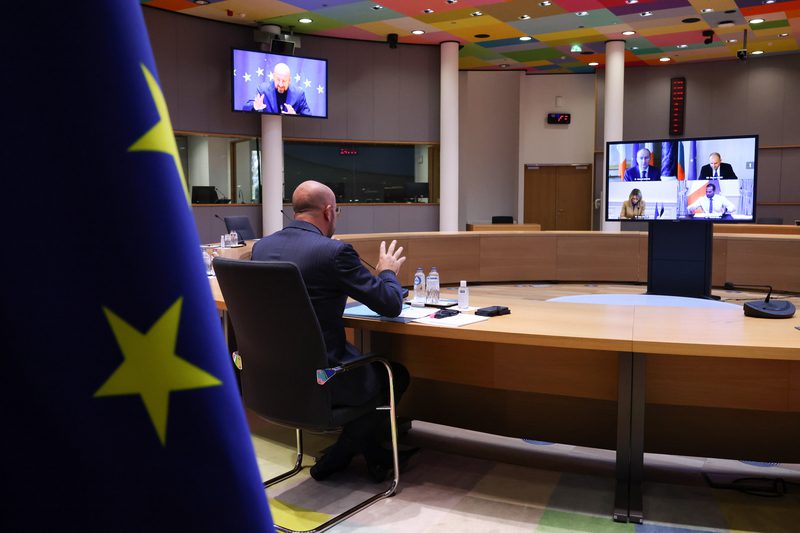
European Council President Charles Michel has invited the European Council to Prague for an informal meeting on the ongoing war in Ukraine, the energy crisis, and the economic turndown.
The meeting will take place Friday, October 7th.
“We will discuss the three most pressing—and interlinked—issues for us all, namely Russia’s war in Ukraine, energy, and the economic situation,” a press release of the invitation stated.
Regarding Russia, the leaders will discuss how to confront Putin’s latest moves in the invasion of Ukraine: the general mobilisation of the population, the recent illegal annexation of more Ukrainian territory, and heightened rhetoric.
“In light of these developments, we must stand united and firm in our response,” Michel said, and reiterated the EU’s alignment with Ukrainian interests:
Our solidarity with Ukraine and its people remains unwavering. We will continue to strengthen our restrictive measures to further increase pressure on Russia to end its war. At our meeting, we will discuss how to continue providing strong economic, military, political, and financial support to Ukraine for as long as it takes.
Diplomats have already been discussing a new sanctions package on Russia, Euractiv reports.
“We will also examine how best to protect our critical infrastructure,” Michel added.
Russia is suspected of sabotaging last week the Nord Stream 1 and 2 gas pipelines that are the conduit for the natural gas central Europe relies on.
On the energy and economic front, Michel said that the discussion would focus on ongoing concerns about securing energy supplies for winter and protecting businesses and households from the effects of rising energy costs, along with spillover economic effects.
“We will assess the decisions already taken in this regard and give guidance on further action needed to ensure a well-coordinated European response,” Michel stated in the invitation.
The informal meeting to be held this Friday is expected to provide preliminary measures on energy, the economy, and sanctions against Russia that can be taken up at a later date yet to be determined.
“More than ever, the key will be our ability to stand united and coordinate our policy response, in a spirit of solidarity and in defence of our common interests,” he concluded his invitation to leaders.
Michel invited the heads of states to Prague on the heels of a meeting of energy ministers on September 30th, where energy ministers agreed to a voluntary 10% reduction in electricity demand, with a minimum of 5% mandatory reduction, though countries are free to choose the measures they will use back home to reduce electricity demand.
On the subject of energy, ministers also agreed to windfall taxes on the energy sector.
For “so-called inframarginal technologies such as renewables, nuclear, and lignite,” the tax takes the form of a revenue cap set at €180/MWh. “The level of the cap is designed to preserve the profitability of the operators and avoid hindering investments in renewable energies,” the statement on the meeting said.
Countries are free to decide how to collect revenues over this level.
For the fossil fuel sector, ministers agreed to a ‘solidarity levy’ on taxable profits above a 20% increase of the average yearly taxable profits since 2018. “Member states will use proceeds from the solidarity contribution to provide financial support to households and companies and to mitigate the effects of high retail electricity prices,” the press release on the meeting said.
States also agreed to allow each other to set electricity prices for both small businesses and households, including setting them below cost if necessary.
The energy consumption reduction targets apply until 31 March 2023, and the mandatory cap on market revenues lasts until 30 June 2023.
The measures will go into effect once published in the EU’s Official Journal in early October.
Member states introduced specific exemptions for Cyprus and Malta.
